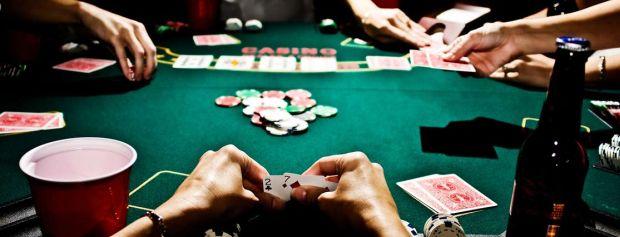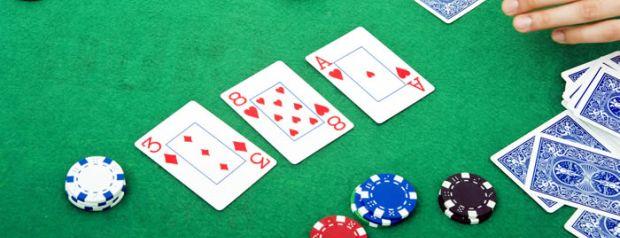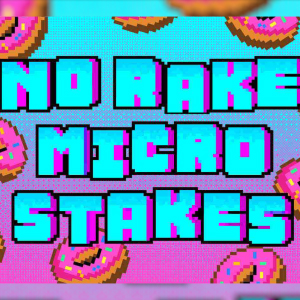Top 3 Signs That You've Found a Soft Table
9 years ago

02 Aug
(Photo: Dailymail.co.uk)
G reg “Fossilman” Raymer once said that he had no desire to play against the best players in the world and went as far as to say he would prefer the best players never sat down at his table. Finding a soft table in online poker is very difficult these days as it seems everyone knows how to play and plays poker to a decent standard. In a cash game we can choose where to sit, but in a tournament we need to be assessing the strength of our opponents on an ongoing basis. In this article we will consider the top three indicators of a soft table so you can get to work converting your edge when you encounter these favorable circumstances.

Horrible Bet Sizing
The size of your bets is the one thing you can never hide. The reasons for your bet can be debated forever, but the bet size itself is known to all players, the dealer, and the railbirds as soon as you make it. Mistakes with bet sizing are a great way of separating a good player from a bad player in No Limit games.
We have all played in a tournament where the pot is, let’s say, $1000 after a few streets of betting then your opponent fires out a tiny bet of $50 or whatever the lowest denomination is on the river. This bet does nothing in terms of being a value bet, it is not a blocker bet, and it is an awful attempt at a bluff. Everything from pot odds, implied odds, timing, (everything really) point to this meagre bet being a big mistake. Clearly a player who utilizes such a tiny bet cannot be a strong player. It indicates the player is very beatable and probably a very poor player. Whilst there is a chance there is some deception at hand, observing other bets the player makes will quickly confirm whether they were being tricky or, more likely, they have not learned enough about poker to realize the big mistake they are making.
Bet sizing errors are not confined to the river. Some players get scared with a huge hand and want to claim the pot halfway through the action, betting manically to get the other player to fold. The action should tell a story, as we will discuss later.
Another thing to look out for is the reaction of other players to a very small bet. I remember playing recently where the action led to a pot of $2000 in a Single Table Tournament in my local pub. I knew the players were bad, but when one player bet $100 into the $2000 pot and the other guy folded, I was incensed, it almost felt like collusion. I had to bite my tongue and remember we were playing for a pint token! But it was so bad! It reminded me that these players were not good poker players, but in a more important spot where there was more at stake, this sort of information would have helped me gain confidence and play future hands better.

I want to see the flop!
Constant multi-way flops are more commonly seen at lower buy-in events but you will come across it, and I think it is a big giveaway towards the strength or weakness of the table as a whole. Amateur players realize that in order to make a strong five card hand you need to see the flop first, so you will often see many players calling the raiser with no regard for position (a tell in itself) and then fold to any action post-flop when they miss their hand.
This effectively turns their hand over as you know that if they remain in the hand after the multi-way flop, which happens on virtually every hand whether raised or not, they have hit something. It can get tricky as what they have hit could be just about anything as their pre-flop limping or calling range is so wide, so you need a strong hand yourself to contest them. The good news is that a weak player will view two pair like a straight flush so providing you hit a strong hand yourself, you are in good shape. I have found that if you can beat two pair, you stand a great chance of scooping the pot.
The weak player's problem is their absolute conviction that they must see the flop no matter what, desperately trying to hit something to continue in the hand. With you being selective pre-flop and playing only good hands, you start the hand ahead and can hopefully hold and build on that advantage as the hand progresses. You can even afford to make your pre-flop raises bigger to give yourself as much equity as possible against these weak players, who will be playing too many hands, playing out of position, and calling hands they should be folding. Be aware, you will occasionally suffer frustrating bad beats, but by and large you will win more than you lose. If every table you sit at followed this type of playing pattern, you would find yourself making a healthy profit. When you find this type of edge, celebrate it and exploit for as long as you can.

No Coherent Story in the hand
This is slightly more subtle but no less exploitable. A weak table does not necessarily mean a bunch of absolute beginners, it can mean you are playing with decent, but not brilliant, players that you, as a intermediate/advanced player, hold a small but tangible edge over.
During a normal hand, you can find yourself facing a decision that just seems weird. Let’s look at an example. You hold Ks Qs in late position and raise pre-flop and you are called by one opponent from button. The flop is Kh 8h 2d. You bet half the pot and they call. The turn is a 6d. You check, expecting a bet, but they check too, taking the free card. The river is a blank, the 3s. You bet, they raise. What do you think about this? They called pre-flop, they did not check raise, so AK is unlikely, particularly as you checked the turn and they took a free card. A blank 3s on the river means any free draw missed that they took by checking back on the turn. KJ is possible. A set is unlikely. It seems like a missed draw. You call and show your top pair, they muck.
The problem for the villain was that their raise on the river simply didn’t stack up. It could have been a slow-play and on a few occasions a really sophisticated player might have set that up, but more often than not, in this type of pot the play would be straightforward. Could they have slow played AK all the way down and then check raised the river when you could have held AA or 88 for a better hand? Either way the bet can be argued to be weak.
If you are a strong player, you should have an edge anyway, but observing carefully these types of traits at the table can alert you to particularly exciting situations where you hold a massive edge over your opponents. As this type of situation does not last forever, you can quickly sharpen your mind and collect the profits!







Comments
You need to be logged in to post a new comment